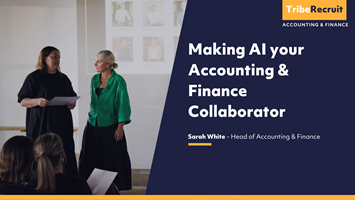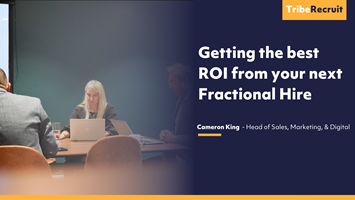How have the not-for-profit, charity and social enterprise sector fared during recent COVID-19 times? What can we learn from them? Tribe’s Suzie Gates finds out.

At Tribe, we partner with companies like Blind Low Vision NZ, The Cookie Project, New Zealand Blood Services (NZBS), and Eat My Lunch. I caught up with each of them to see how they’ve adjusted following COVID-19 and lockdown. But first, it's worth distinguishing between the three types of companies that do some good in our communities.
WHAT'S THE DIFFERENCE?
The main practical difference between a charity and a non-profit organisation is found in tax administration - while charities registered with the Charities Commission are automatically tax-exempt, non-profit organisations are not.
Social enterprises are hybrid organisations that trade goods and services to achieve social, environmental, economic, and cultural outcomes. Social enterprise offers a unique combination of social purpose and financial independence. Traditionally, the outcomes are developed and implemented by the government (the public sector) and delivered in partnership with either business (the private sector) or charities (the community sector). Social enterprise provides a unique alternative to traditional social service provision and is able to develop innovative new approaches to solving tough problems.
Like most businesses, they have adjusted their business working models and ways they engage with their audience due to COVID-19.
BLIND LOW VISION NZ
Blind Low Vision NZ is a registered charity with the belief that anyone who is blind, deafblind or has low vision should have the opportunity to be self-reliant and do the things they want to in life. As well as supporting individuals, Blind Low Vision NZ seeks to make big-picture changes by advocating for inclusive communities and optimal eye care services for all New Zealanders.
Throughout lockdown, BLVNZ shared tips for navigating COVID-19 from a blind and low vision perspective, as well as sharing personal stories of people. Direct marketing manager, Adrienne Tollemache, says their number one priority was to ensure supporters, clients, staff and their wider community were safe and well:
"Some of our planned activity was disrupted, so we’ve had to look at rescheduling activity, as well as reviewing what we were communicating and which channels we planned to use to do so – so pivoting to digital channels where appropriate. As a team, we’ve also had to adapt the ways we work together. So regular Zoom catch ups and tools like Slack have become a vital part of how we work now."
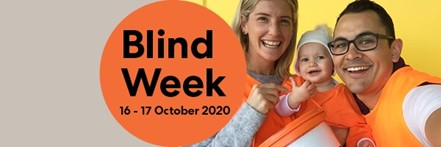
THE COOKIE PROJECT
The Cookie Project is a certified social enterprise that employs Kiwis with disabilities to make delicious cookies. Since they first launched in mid-2018, they have won numerous awards and have featured in international textbooks as a model for how to launch a profitable social enterprise. However, most importantly, they’ve provided hundreds of hours of meaningful, appropriately paid work for people with disabilities – providing not only income but work and life experiences for a section of our society that is often overlooked.
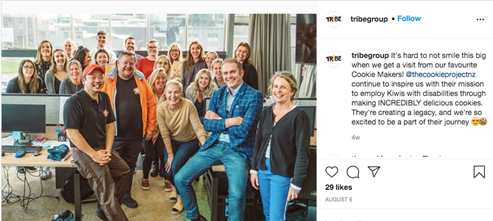
During COVID-19, there was a massive drop in orders as people weren’t in the office, so co-founders Eric Chuah and Graeme Haddon used the time to be proactive. The pair suggested homemade cookie packs to all their big clients as a way for them to stay connected with their teams and give the warm fuzzies. They also used this time to contact all supermarket outlets to try and get their products on shelves to ensure visibility in online shopping. A full-time marketing person was also employed as a show of commitment to grow their brand.
NEW ZEALAND BLOOD SERVICE (NZBS)
The NZBS collects, processes and tests all blood donations in NZ and ensures that blood and blood products are available to all Kiwis when they are needed. NZBS is a Crown Entity under the Ministry of Health and operates on a not-for-profit basis.
The biggest challenge for a company like NZBS during a crisis is managing donor demand, particularly given fluctuations in hospital demand, and getting the message out that it's safe to keep donating. The Blood Service adapted its communications and set up a page on its website to provide updates. Red blood cells only last 35 days so they need regular donations. This challenge was handled by sending app notifications, emails and calling donors, alongside a campaign asking people to 'do their bit and donate a bit of blood or plasma’.
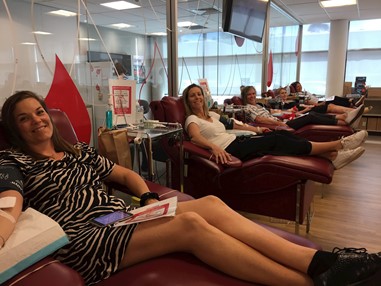
During the initial lockdown, blood centres remained open as an essential service but I thought donor numbers might have decreased. However, when I caught up with the Blood Service’s Asuka Burge, she said they had a great response. In fact, they were booking donors two to three weeks ahead! Could this have been from a feeling of solidarity and altruism, coupled with the fact people had a little more time? During the second lockdown in Auckland, Asuka again found that donors continued to book and ensure their blood supply stayed in great shape. She puts it down to people being aware of the essential service nature of blood donors and knowing it was safe.
Keen to donate? You can find out if you’re eligible and book an appointment today.
EAT MY LUNCH
Eat My Lunch is a social enterprise with a mission to ensure no child goes hungry at school. The team does this by delivering fresh and healthy food to customers, which funds lunches to kids in need. Eat My Lunch used the lockdown to get its brand spanking new website up and running. The team worked hard to make it easier for people to view their menu, order from them and keep updated. There will be a number of new additions coming to the website over the next few months, including a new way of reporting the impact their lunch programme has and a new Eat My Lunch blog!
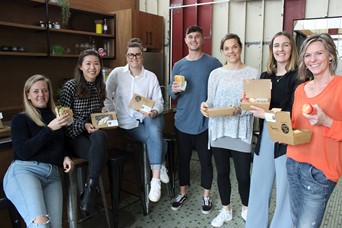 The downside of COVID-19 is that orders for corporate lunches are significantly reduced given the slow migration back into the office after lockdown. Corporate discretionary spending on meetings, events and conferences has also been reduced as businesses tighten up their balance sheets. This has significantly impacted EML’s ability to give, so it had to get creative. Eat My Lunch has pivoted and come up with a number of awesome new initiatives through revamping its offering/delivery service, which is no mean feat when you think of all the operational variables involved. They instigated:
The downside of COVID-19 is that orders for corporate lunches are significantly reduced given the slow migration back into the office after lockdown. Corporate discretionary spending on meetings, events and conferences has also been reduced as businesses tighten up their balance sheets. This has significantly impacted EML’s ability to give, so it had to get creative. Eat My Lunch has pivoted and come up with a number of awesome new initiatives through revamping its offering/delivery service, which is no mean feat when you think of all the operational variables involved. They instigated:
- Deliveries of work lunches to residential addresses
- Securing funding and providing lunches for kids in need by supplying week-long boxes delivered to their residential addresses
- Amongst other things, EML has evolved to meet the changing needs of their customers by partnering with Richie & Co to launch gift boxes. This allows an alternative way to give.
I asked general manager, Kelly Burbidge, to share her thoughts:
“COVID-19 has been a challenging time for most businesses and we have certainly had to adapt to ensure that we can continue to feed Kiwi kids. With food insecurity on the rise we know, more than ever, we have an important role to play. We have to keep finding ways to evolve our business and provide our customers solutions to help their changing business models and also allow them new ways to be able to give."
![]()
It’s clear these businesses have faced new challenges in how their business models operate. Their profit & loss directly impacts how they can provide for their community, who are reliant on these products and services. It is great to see the kindness of volunteers, donors, the wider community and partners jumping in and assisting these companies when disaster strikes.



